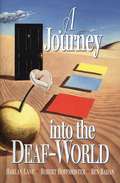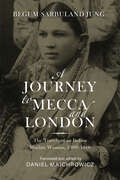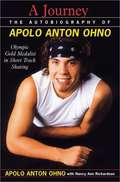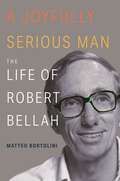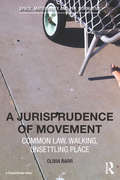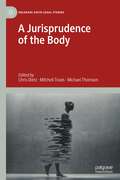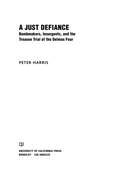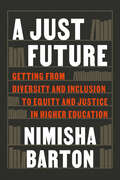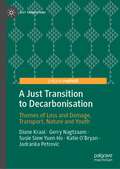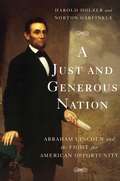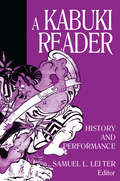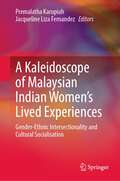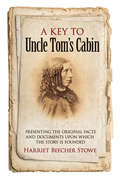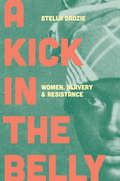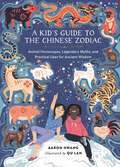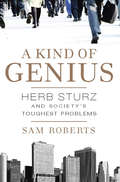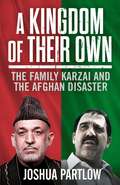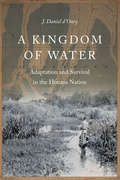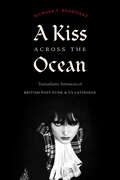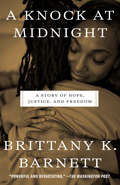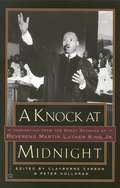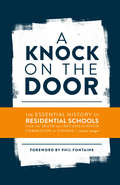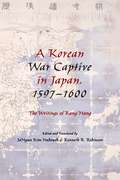- Table View
- List View
A Journey into the Deaf-world
by Harlan Lane Robert Hoffmeister Ben BahanAn introduction to the lives, language, and culture of the Deaf World, the signing community in the US. Conversations with deaf people reveal concepts central to the Deaf World, while overviews of the history, culture, and political agenda of the Deaf World provide details on the education of deaf children, deaf culture worldwide, and the ways in which technology helps and hinders deaf people. For students in hearing disorders, deaf studies, audiology, and speech pathology, and for general readers.
A Journey to Mecca and London: The Travels of an Indian Muslim Woman, 1909–1910
by Begum Sarbuland JungDescended from Mughal nobility, Akhtar al-Nisa Begum Nawab Sarbuland Jung grew up in Hyderabad in southern India, where she lived a quiet, private, and privileged life at the heart of the state's royal court. In 1896, at the age of 20, she married Nawab Muhammad Hamidullah Khan Sarbuland Jung, a prominent lawyer and the scion of a leading Muslim reformist movement. In 1909, the wealthy couple embarked on a four-month journey through the Middle East and Europe, performing the hajj in Mecca and sitting for tea with the future king and queen of England. A Journey to Mecca and London provides the first full English translation of Begum Sarbuland's Urdu travel diary from this journey, of which only three original copies remain. Originally intended for circulation among friends and family and later published, her informal entries not only reveal the everyday practices of an Indian woman of her time, but also detail her impressions and reactions as she explored the world alongside her husband. As Begum Sarbuland encountered other women and Muslims during her travels, those encounters shaped her reassessment of her own identity as a Muslim woman. Her observations hold continued significance for readers interested in critical questions about gender, Islam, and identity. Daniel Majchrowicz has thoroughly annotated his translation and paired it with rich appendices, including a biographical sketch of Begum Sarbuland and excerpts from Hamidullah Khan's own accounts of their journey.Engagingly written and enriched with years of original research, archival work, and family interviews, A Journey to Mecca and London restores the nearly forgotten narrative of one of India's first Muslim women travel writers to its rightful place in Indian and Islamic history.
A Journey: The Autobiography of Apolo Anton Ohno
by Nancy Ann Richardson Apolo Anton OhnoI honestly don't know what battles I'm going to face next, only that I have the spirit and the will to face anything and fight for my sport and for what I believe is right. I'll give 110 percent and still dig down deeper for more. Apolo Anton Ohno won both a gold and a silver medal at the 2002 Olympic Games and became an instant hero. But his Olympic victory represents just one moment of his incredible, and continuing journey.From an early age, his father, Yuki, recognized Apolo's natural abilities and made it his mission to help his son live up to his potential. But getting Apolo to follow through on his opportunities wasn't always easy. Like many kids, Apolo struggled to balance his energetic and fiercely competitive nature with his desire for independence and freedom. And even as he succeeded on the ice, he felt the loneliness that comes with being at the top. Amid the pain, the fear, the uncertainty, Apolo asked himself again and again, Why am I doing this? And the answer came to him: He truly loved to skate. So with laser-sharp focus he pursued his number-one goal: to become a great athlete.From his personal struggles to his unwavering commitment and ambition, Apolo Anton Ohno is a true example of courage. He has battled his personal demons, toppled physical barriers, and clawed his way to the top -- but even now he does not rest. Always, he looks within himself to hear his strongest critic, to face his fiercest competitor. And always, he continues to strive to be the best -- not just for his team, not just for his country -- but also for himself. And that is what makes Apolo Anton Ohno a true champion. This is his story.
A Joyfully Serious Man: The Life of Robert Bellah
by Matteo BortoliniThe brilliant but turbulent life of a public intellectual who transformed the social sciencesRobert Bellah (1927–2013) was one of the most influential social scientists of the twentieth century. Trained as a sociologist, he crossed disciplinary boundaries in pursuit of a greater comprehension of religion as both a cultural phenomenon and a way to fathom the depths of the human condition. A Joyfully Serious Man is the definitive biography of this towering figure in modern intellectual life, and a revelatory portrait of a man who led an adventurous yet turbulent life.Drawing on Bellah's personal papers as well as in-depth interviews with those who knew him, Matteo Bortolini tells the story of an extraordinary scholarly career and an eventful and tempestuous life. He describes Bellah's exile from the United States during the hysteria of the McCarthy years, his crushing personal tragedies, and his experiments with sexuality. Bellah understood religion as a mysterious human institution that brings together the scattered pieces of individual and collective experiences. Bortolini shows how Bellah championed intellectual openness and innovation through his relentless opposition to any notion of secularization as a decline of religion and his ideas about the enduring tensions between individualism and community in American society.Based on nearly two decades of research, A Joyfully Serious Man is a revelatory chronicle of a leading public intellectual who was both a transformative thinker and a restless, passionate seeker.
A Jurisprudence of Movement: Common Law, Walking, Unsettling Place
by Olivia BarrLaw moves, whether we notice or not. Set amongst a spatial turn in the humanities, and jurisprudence more specifically, this book calls for a greater attention to legal movement, in both its technical and material forms. Despite various ways the spatial turn has been taken up in legal thought, questions of law, movement and its materialities are too often overlooked. This book addresses this oversight, and it does so through an attention to the materialities of legal movement. Paying attention to how law moves across different colonial and contemporary spaces, this book reveals there is a problem with common law’s place. Primarily set in the postcolonial context of Australia – although ranging beyond this nationalised topography, both spatially and temporally – this book argues movement is fundamental to the very terms of common law’s existence. How, then, might we move well? Explored through examples of walking and burial, this book responds to the challenge of how to live with a contemporary form of colonial legal inheritance by arguing we must take seriously the challenge of living with law, and think more carefully about its spatial productions, and place-making activities. Unsettling place, this book returns the question of movement to jurisprudence.
A Jurisprudence of the Body (Palgrave Socio-Legal Studies)
by Michael Thomson Chris Dietz Mitchell TravisThis book brings together a range of theoretical perspectives to consider fundamental questions of health law and the place of the body within it. Health, and more recently health law, has long been animated by discussions of particular bodies - whether they are disordered, diseased, or disabled - but each of these classificatory regimes claim some knowledge about the body. This edited collection aims to uncover and challenge the fundamental assumptions that underpin medico-legal knowledge claims about such bodies. This exploration is achieved through a mix of perspectives, but many contributors look towards embodiment as a perspective that understands bodies to be shaped by their institutional contexts. Much of this work alerts us to the idea that medical practitioners not only respond to healthcare issues, but also create them through their own understandings of ‘normality’ and ‘fixing’. Bodies, as a result, cannot be understood outside of, or as separate to, their medical and legal contexts. This compelling book pushes the possibility of new directions in health care and health justice.
A Just Defiance
by Peter HarrisBoth a riveting courtroom drama and a real-life thriller, A Just Defiance tells the story of four young black South Africans who were arrested for a string of political murders in 1987. In gripping prose, Peter Harris--the white lawyer who defended the men--describes how he came to understand, while constructing the case to save the defendants from the death penalty, the chain of events that led them to undergo training at ANC camps in Angola and return to their homeland to execute some of the apartheid regime's most notorious collaborators. The shocking twists and turns of the high-profile trial kept the public in suspense during the dying days of apartheid. Harris's account of the trial is intercut with flashbacks to instances of the cold-blooded brilliance and deadly efficiency of the squad's operations. We see Nelson Mandela recently released from Robben Island as he begins negotiations that will eventually lead to the assumption of power by the ANC. We read about bomb-making and assassination attempts by both the ANC and the South African police. A critical and popular success in South Africa, this book is a tale of people driven to extremes by injustice and repression, and of ordinary citizens caught up in extraordinary events. Finally, it is the story of a country's search for reconciliation, one that captures the moral vertigo of South Africa's violent apartheid years.
A Just Future: Getting from Diversity and Inclusion to Equity and Justice in Higher Education
by Nimisha BartonA Just Future addresses the precarious future of American higher education and diversity and inclusion initiatives along with it. From a global pandemic to a national reckoning with anti-Blackness, the 2020 historical conjuncture brutally revealed the impact of structural inequalities on historically marginalized communities and galvanized college students, diversity officers, and educators on a scale not seen since the 1960s. In so doing, it exposed the unfinished business of the civil rights era and the limits of diversity and inclusion reforms.The time has come to create a more just future for the most marginalized community members at higher education institutions. To do so, we must share a common understanding of where we have been, what went wrong, and how to get back on track. Barton draws on abolitionist frameworks of social change to provide a bold, comprehensive guide to abolitionism in education, not only for diversity, equity, and inclusion practitioners but also higher education leaders and faculty. As a result, A Just Future provides new values, tools, and mindsets to address—and redress—ongoing forms of oppression that thrive on college campuses.
A Just Transition to Decarbonisation: Themes of Loss and Damage, Transport, Nature and Youth (Just Transitions)
by Gerry Nagtzaam Jadranka Petrovic Diane Kraal Katie O’Bryan Susie Siew HoThis book provides researchers and policy-makers with legal avenues to enable a just transition to decarbonisation. The focus is on the United Nations themes of loss and damage, transport, nature and youth - across Australia and other economies - to significantly reduce CO2 emissions by 2030 and beyond. The four themes scaffold discussions about a just transition beyond the UN Climate Change Conference COP28 in Dubai with the specific issues addressed in this book serving as a starting point for future discussions.
A Just and Generous Nation: Abraham Lincoln and the Fight for American Opportunity
by Harold Holzer Norton GarfinkleIn A Just and Generous Nation, the eminent historian Harold Holzer and the noted economist Norton Garfinkle present a groundbreaking new account of the beliefs that inspired our sixteenth president to go to war when the Southern states seceded from the Union. Rather than a commitment to eradicating slavery or a defense of the Union, they argue, Lincoln’s guiding principle was the defense of equal economic opportunity. Lincoln firmly believed that the government’s primary role was to ensure that all Americans had the opportunity to better their station in life. As president, he worked tirelessly to enshrine this ideal within the federal government. He funded railroads and canals, supported education, and, most importantly, issued the Emancipation Proclamation, which opened the door for former slaves to join white Americans in striving for self-improvement. In our own age of unprecedented inequality, A Just and Generous Nation reestablishes Lincoln’s legacy as the protector not just of personal freedom but of the American dream itself.
A Kabuki Reader: History and Performance
by Samuel L. LeiterUnique in any Western language, this is an invaluable resource for the study of one of the world's great theatrical forms. It includes essays by established experts on Kabuki as well as younger scholars now entering the field, and provides a comprehensive survey of the history of Kabuki; how it is written, produced, staged, and performed; and its place in world theater. Compiled by the editor of the influential Asian Theater Journal, the book covers four essential areas - history, performance, theaters, and plays - and includes a translation of one Kabuki play as an illustration of Kabuki techniques.
A Kaleidoscope of Malaysian Indian Women’s Lived Experiences: Gender‐Ethnic Intersectionality and Cultural Socialisation
by Premalatha Karupiah Jacqueline Liza FernandezThis book presents a compilation of chapters relating to the socio-cultural experiences of Malaysian Indian women. It includes a historical background covering Indian women’s migration to Malaya, and explores the lived realities of contemporary Indian women who are members of this minority ethnic group in the country. The authors cover a wide range of issues such as gender inequality, poverty, the involvement of women in performing arts, work, inter‐personal relationships, and well-being and happiness, drawing on substantial empirical data through a gendered lens. This book addresses the gap in the intersectional gender studies literature on minority groups of women in Malaysia, while simultaneously highlighting the multiple forms of subordination minority women - particularly Indian women - experience in society, including those that arise from gender‐ethnic intersectionality. In examining the case of Indian women in Malaysia, it also speaks to and enriches existing literature on the lives of minority groups of women in the Global South more broadly This anthology is beneficial to researchers and students in the social sciences, particularly in disciplines related to gender studies and minority studies. In addition, it is also useful for policy makers and social activists working with minority women in the Global South.
A Key to Uncle Tom's Cabin: Presenting the Original Facts and Documents Upon Which the Story Is Founded (History Of The United States Ser.)
by Harriet Beecher Stowe"I highly recommend reading this supplement in conjunction with Ms. Stowe's novel to gain a better understanding of the history of our nation." -- The Literary SouthIn 1852 Harriet Beecher Stowe published Uncle Tom's Cabin, an instant classic that received overwhelming acclaim by Northerners and other abolitionist readers. Southerners, conversely, strongly denied the novel's accuracy. The following year Stowe answered pro-slavery critics with this unique bestseller, a meticulous and thoughtful defense of her work, which cites real-life equivalents to her characters.Southern readers were further incensed by this follow-up volume, their wrath in no small part inflamed by a Yankee woman's presuming to tell men what to think. A critical aspect of Stowe's Key is her critique of the law's support of not only the institution of slavery but also the mistreatment of individual slaves. As in the original novel, her challenge extends beyond slavery to the law itself. American society's first widely read political novel, Uncle Tom's Cabin influenced the development of the nation's literature, particularly in terms of protest writing. This supplement to the novel offers valuable insights into a historical and literary landmark.
A Kick in the Belly: Women, Slavery and Resistance
by Stella Abasa DadzieThe story of the enslaved West Indian women in the struggle for freedomEnslaved West Indian women had few opportunities to record their stories for posterity. Yet from their dusty footprints and the umpteen small clues they left for us to unravel, there&’s no question that they earned their place in history. Pick any Caribbean island and you&’ll find race, skin colour and rank interacting with gender in a unique and often volatile way. In A Kick in the Belly, Stella Dadzie follows the evidence, and finds women played a distinctly female role in the development of a culture of slave resistance—a role that was not just central, but downright dynamic. From the coffle-line to the Great House, enslaved women found ways of fighting back that beggar belief. Whether responding to the horrendous conditions of plantation life, the sadistic vagaries of their captors or the &“peculiar burdens of their sex,&” their collective sanity relied on a highly subversive adaptation of the values and cultures they smuggled with them naked from different parts of Africa. By sustaining or adapting remembered cultural practices, they ensured that the lives of chattel slaves retained both meaning and purpose. A Kick in the Belly makes clear that their subtle acts of insubordination and their conscious acts of rebellion came to undermine the very fabric and survival of West Indian slavery.
A Kid's Guide to Washington, D.C.
by Richard Brown Miriam Chernick Diane C. ClarkFor children on school trips or traveling with their families, here is kid-friendly information about popular monuments, museums, exhibits, shopping, sporting events--and even day trips outside the immediate metropolitan area. Originally published in 1989, this handy guide now features completely updated text and photographs, along with the puzzles, games, and wonderful tidbits of trivia that have made it one of the most useful D.C. guidebooks for children. A Kid's Guide to Washington, D.C. is the perfect traveling companion for any youngster who wants to play an active role in planning a family vacation. Includes: Puzzles, Games, Trivia, and More!
A Kid's Guide to the Chinese Zodiac: Animal Horoscopes, Legendary Myths, and Practical Uses for Ancient Wisdom
by Aaron HwangA Kid's Guide to the Chinese Zodiac is a charming, fun-filled introduction to eastern astrology, perfect for discovering what your sign—Rat, Ox, Tiger, Rabbit, Dragon, Snake, Horse, Goat, Monkey, Rooster, Dog, or Pig—says about you. Are you loyal like the Dog? Or stubborn like the Ox? What does the time you were born say about who you are? Can knowing more about your Zodiac empower you in your day to day? A Kid's Guide to the Chinese Zodiac offers the history and lore behind this ancient classification system, along with practical advice for young readers on how to navigate relationships and apply oneself at school and at home, all based on the qualities associated with the twelve Zodiac animals. Someone born in the year of the Pig might prioritize stability and comfort. Naturally agreeable, they may need to work at recognizing when they're uncomfortable and speak up so they don't get stuck in the mud. Someone who is a Rat, on the other hand, might be ambitious and clever, but may need to take a step back from their own ideas every now and then in order to find balance. Beautifully illustrated, with sidebars on Chinese culture and myth throughout, this book is an informative and mystical guide for any kid who is curious about the universe and how they fit into it.
A Kind of Genius: Herb Sturz and Society's Toughest Problems
by Sam RobertsIn A Kind of Genius, Sam Roberts offers a window onto Herb Sturz's extraordinary life's work. Sturz began his long career in social entrepreneurship by reforming the bail system and founding the Vera Institute of Justice. He served as New York City's Deputy Mayor for Criminal Justice under Ed Koch and then as Chairman of the City Planning Commision. He moved on to establish affordable inner-city housing and programs for at-risk individuals. But Sturz has, to date, largely eschewed the public's eye.Roberts pays tribute to Sturz's inspirational legacy of accomplishment. His initiatives have consistently provided solutions to our most challenging problems. Here, for the first time, his astonishing story is told in full.
A Kingdom of Their Own: The Family Karzai and the Afghan Disaster
by Joshua PartlowThe Afghan war will be remembered for its politics more than its combat. There were few, if any, major battles. The longest war in American history has left 1,800 U.S. troops dead, fewer than half the number killed in Iraq. The violence is mostly confined to the farmlands, deserts, and mountains, playing out in small ambushes, hit-and-run attacks, and assassinations. The United States came to Afghanistan on a simple mission: to avenge the September 11 attacks and drive the Taliban from power. This took less than two months. The story of the next decade is about how the ensuing fight for power and money - the power and money supplied to one of the poorest nations on earth in ever-greater amounts - left the region even more dangerous than before the first troops arrived. At the centre of this story is the Karzai family. The president and his brothers began the war as symbols of a new Afghanistan - moderate, educated, fluent with East and West - the antithesis of the brutish and backwards Taliban regime. Now, with the war in shambles, they are in open conflict with each other and their Western allies. In their experience one can find a war's worth of mistakes, squandered hopes, and wasted chances. Nothing encapsulates the essence of the war's trajectory - and the descent from optimism to despair, friends to enemies - as neatly as the story of the Karzai family itself.
A Kingdom of Water: Adaptation and Survival in the Houma Nation (Indians of the Southeast)
by J. Daniel d'OneyA Kingdom of Water is a study of how the United Houma Nation in Louisiana successfully navigated a changing series of political and social landscapes under French, Spanish, British, and American imperial control between 1699 and 2005. After 1699 the Houma assimilated the French into their preexisting social and economic networks and played a vital role in the early history of Louisiana. After 1763 and Gallic retreat, both the British and Spanish laid claim to tribal homelands, and the Houma cleverly played one empire against the other. In the early 1700s the Houma began a series of adaptive relocations, and just before the Louisiana Purchase in 1803 the nation began their last migration, a journey down Bayou Lafourche. In the early 1800s, as settlers pushed the nation farther down bayous and into the marshes of southeastern Louisiana, the Houma quickly adapted to their new physical environment. After the Civil War and consequent restructuring of class systems, the Houma found themselves caught in a three-tiered system of segregation. Realizing that education was one way to retain lands constantly under assault from trappers and oil companies, the Houma began their first attempt to integrate Terrebonne Parish schools in the early twentieth century, though their situation was not resolved until five decades later. In the early twenty-first century, the tribe is still fighting for federal recognition.
A Kiss across the Ocean: Transatlantic Intimacies of British Post-Punk and US Latinidad
by Richard T. RodríguezIn A Kiss across the Ocean Richard T. Rodríguez examines the relationship between British post-punk musicians and their Latinx audiences in the United States since the 1980s. Melding memoir with cultural criticism, Rodríguez spotlights a host of influential bands and performers including Siouxsie and the Banshees, Adam Ant, Bauhaus, Soft Cell, Frankie Goes to Hollywood, and Pet Shop Boys. He recounts these bands’ importance for him and other Latinx kids and discusses their frequent identification with these bands’ glamorous performance of difference. Whether it was Siouxsie Sioux drawing inspiration from Latinx contemporaries and cultural practices or how Soft Cell singer Marc Almond’s lyrics were attuned to the vibrancy of queer Latinidad, Rodríguez shows how Latinx culture helped shape British post-punk. He traces the fandom networks that link these groups across space and time to illuminate how popular music establishes and facilitates intimate relations across the Atlantic. In so doing, he demonstrates how the music and styles that have come to define the 1980s hold significant sway over younger generations equally enthused by their matchlessly pleasurable and political reverberations.
A Knock at Midnight: A Story of Hope, Justice, and Freedom
by Brittany K. BarnettAn urgent call to free those buried alive by America&’s legal system, and an inspiring true story about unwavering belief in humanity—from a gifted young lawyer and important new voice in the movement to transform the system.NAMED ONE OF THE BEST BOOKS OF THE SUMMER BY USA TODAY AND NEWSWEEK • &“An essential book for our time . . . Brittany K. Barnett is a star.&”—Van Jones, CEO of REFORM Alliance, CNN Host, and New York Times bestselling author Brittany K. Barnett was only a law student when she came across the case that would change her life forever—that of Sharanda Jones, single mother, business owner, and, like Brittany, Black daughter of the rural South. A victim of America&’s devastating war on drugs, Sharanda had been torn away from her young daughter and was serving a life sentence without parole—for a first-time drug offense. In Sharanda, Brittany saw haunting echoes of her own life, both as the daughter of a formerly incarcerated mother and as the once-girlfriend of an abusive drug dealer. As she studied this case, a system came into focus: one where widespread racial injustice forms the core of America&’s addiction to incarceration. Moved by Sharanda&’s plight, Brittany set to work to gain her freedom. This had never been the plan. Bright and ambitious, Brittany was a successful accountant on her way to a high-powered future in corporate law. But Sharanda&’s case opened the door to a harrowing journey through the criminal justice system. By day she moved billion-dollar deals, and by night she worked pro bono to free clients in near-hopeless legal battles. Ultimately, her path transformed her understanding of injustice in the courts, of genius languishing behind bars, and the very definition of freedom itself.Brittany&’s riveting memoir is at once a coming-of-age story and a powerful evocation of what it takes to bring hope and justice to a system built to resist them both.
A Knock at Midnight: Inspiration from the Great Sermons of Reverend Martin Luther King, Jr.
by Clayborne Carson Peter HolloranThis extraordinary collection of sermons by Dr. Martin Luther King, Jr. --many never before published-- features introductions and commentary by the world's leading ministers and theologians, including Archbishop Desmond Tutu, evangelist Billy Graham, and Congressman Floyd Flake. Copyright © Libri GmbH. All rights reserved.
A Knock on the Door: The Essential History of Residential Schools from the Truth and Reconciliation Commission of Canada, Edited and Abridged
by Truth and Reconciliation Commission of Canada Phil Fontaine Aimée Craft“It can start with a knock on the door one morning. It is the local Indian agent, or the parish priest, or, perhaps, a Mounted Police officer.” So began the school experience of many Indigenous children in Canada for more than a hundred years, and so begins the history of residential schools prepared by the Truth & Reconciliation Commission of Canada (TRC). Between 2008 and 2015, the TRC provided opportunities for individuals, families, and communities to share their experiences of residential schools and released several reports based on 7000 survivor statements and five million documents from government, churches, and schools, as well as a solid grounding in secondary sources. A Knock on the Door, published in collaboration with the National Research Centre for Truth & Reconciliation, gathers material from the several reports the TRC has produced to present the essential history and legacy of residential schools in a concise and accessible package that includes new materials to help inform and contextualize the journey to reconciliation that Canadians are now embarked upon. Survivor and former National Chief of the Assembly First Nations, Phil Fontaine, provides a Foreword, and an Afterword introduces the holdings and opportunities of the National Centre for Truth & Reconciliation, home to the archive of recordings, and documents collected by the TRC. As Aimée Craft writes in the Afterword, knowing the historical backdrop of residential schooling and its legacy is essential to the work of reconciliation. In the past, agents of the Canadian state knocked on the doors of Indigenous families to take the children to school. Now, the Survivors have shared their truths and knocked back. It is time for Canadians to open the door to mutual understanding, respect, and reconciliation.
A Korean War Captive in Japan, 1597–1600: The Writings of Kang Hang
by JaHyun Kim Haboush Kenneth RobinsonKang Hang was a Korean scholar-official taken prisoner in 1597 by an invading Japanese army during the Imjin War of 1592–1598. While in captivity in Japan, Kang recorded his thoughts on human civilization, war, and the enemy's culture and society, acting in effect as a spy for his king. Arranged and printed in the seventeenth century as Kanyangnok, or The Record of a Shepherd, Kang's writings were extremely valuable to his government, offering new perspective on a society few Koreans had encountered in 150 years and new information on Japanese politics, culture, and military organization.In this complete, annotated translation of Kanyangnok, Kang ruminates on human behavior and the nature of loyalty during a time of war. A neo-Confucianist with a deep knowledge of Chinese philosophy and history, Kang drew a distinct line between the Confucian values of his world, which distinguished self, family, king, and country, and a foreign culture that practiced invasion and capture, and, in his view, was largely incapable of civilization. Relating the experiences of a former official who played an exceptional role in wartime and the rare voice of a Korean speaking plainly and insightfully on war and captivity, this volume enables a deeper appreciation of the phenomenon of war at home and abroad.
A Lab of One's Own: One Woman's Personal Journey Through Sexism in Science
by Rita Colwell Sharon Bertsch McGrayneA riveting memoir-manifesto from the first female director of the National Science Foundation about the entrenched sexism in science, the elaborate detours women have taken to bypass the problem, and how to fix the system. If you think sexism thrives only on Wall Street or in Hollywood, you haven&’t visited a lab, a science department, a research foundation, or a biotech firm. Rita Colwell is one of the top scientists in America: the groundbreaking microbiologist who discovered how cholera survives between epidemics and the former head of the National Science Foundation. But when she first applied for a graduate fellowship in bacteriology, she was told, &“We don&’t waste fellowships on women.&” A lack of support from some male superiors would lead her to change her area of study six times before completing her PhD. A Lab of One&’s Own documents all Colwell has seen and heard over her six decades in science, from sexual harassment in the lab to obscure systems blocking women from leading professional organizations or publishing their work. Along the way, she encounters other women pushing back against the status quo, including a group at MIT who revolt when they discover their labs are a fraction of the size of their male colleagues&’. Resistance gave female scientists special gifts: forced to change specialties so many times, they came to see things in a more interdisciplinary way, which turned out to be key to making new discoveries in the twentieth and twenty-first centuries. Colwell would also witness the advances that could be made when men and women worked together—often under her direction, such as when she headed a team that helped to uncover the source of the anthrax used in the 2001 letter attacks. A Lab of One&’s Own shares the sheer joy a scientist feels when moving toward a breakthrough, and the thrill of uncovering a whole new generation of female pioneers. But it is also the science book for the #MeToo era, offering an astute diagnosis of how to fix the problem of sexism in science—and a celebration of the women pushing back.
